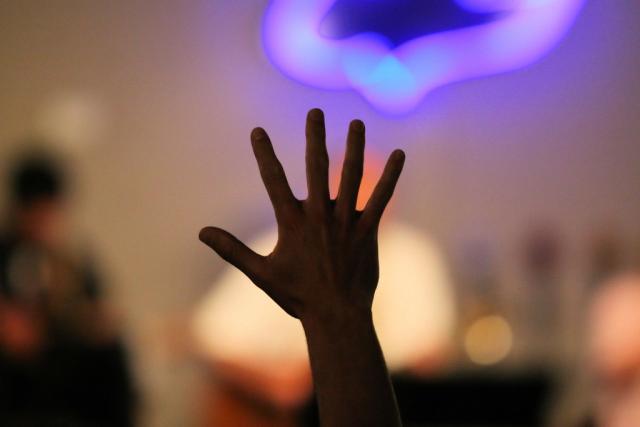This summer I am working on my upcoming book on Esther for Wipf and Stock. This has taken me miles away from Galatia (where my doctoral research has largely resided) to the capital of the Persian Empire, Susa. Additionally, I am no longer in the first century, but am thinking about the reign of King Xerxes (Ahasuerus in Hebrew) in the fifth century before Christ. Needless to say, it has been a complete change of pace, but I’m enjoying the process of working on this little side-project.
One of the most intriguing aspects of the book of Esther, as is often noted, is that there is no mention of God. There is a surprising dearth of basic religious vocabulary, let alone piety and practice that is distinctly Jewish. This often leads commentators to note how God is active “behind the scenes” even though God does not appear to be involved in the story at all. We certainly don’t witness anything miraculous, and so we’re left to assume that God’s hand is guiding the story regardless of the fact that the author never explicitly tells us this.
I’ve been around these tracks before on the blog, and my upcoming book deals with the sort of issues raised above (and more). For this present post, I want to stop and reflect on the idea of God’s presence a bit further. My interest at present is not really with the book of Esther and the extent to which God is either present or absent in the story, but my recent work on that story has spurred some deeper theological/pastoral reflection on our present experiences of God.
Where is God?
This is a question we ask/hear a lot. Perhaps we hear it when sharing our faith with friends, or when considering the vastness of creation and wondering whether there is a God active and present in the midst of my silly little life. Though perhaps we typically ask/hear this question in the past tense.
Where was God?
With this sort of question we might hear resonances of tragedy as evoking this response. Where was God when x happened? Why didn’t God act and change the outcome? The evil around us – whether natural evil or violence or injustice – evokes this question. But what about a third version of the question?
Where will God be?
This last question is very important. Each of the previous two questions are answered and find their meaning in the third. In fact, I want to suggest that the third question is the most crucial question to ask in relation to God’s presence and absence. Allow me to explain.
In our modern evangelical settings we often go to church for the experience. We want to feel God’s presence. We sometimes make decisions about which church to attend based upon the style of worship, and most often, this is based upon how the worship makes us feel. In charismatic circles, the present experience of God is crucial to the ethos of the movement. Most explicit perhaps are the likes of Bill Johnson (Bethel Church in Redding, CA) and those associated with him who strongly emphasize this aspect of the Christian life (more like over-emphasize; watch this video [#1] and this video [#2] on the “glory cloud” which is allegedly a special manifestation of gold glitter… ahem, I mean, God’s presence).
And then there are moments when Christians do not feel God; they stop experiencing God. When there is no presence of unrepentant sin and no discernible reason for God’s absence, Christians are left perplexed. Theologians call this period “the Dark Night of the Soul.” It seems that when it is all boiled down, because evangelicals have so emphasized personal conversion (and rightly so!) and therefore a personal relationship with God (again, rightly so!) they have turned the Christian life into the experience of God.
So what’s missing?
The answer? In a word: Eschatology. As Christians we are in the penultimate era of salvation history awaiting the future consummation of all things (and if you’re a Premillennialist, we are in the prepenultimate era). Thus, the ultimate awaits us. Then we will truly experience God; he will climatically reveal himself; he will personally officiate the wedding of heaven and earth and there shall be no divorce! We can’t forget that the Bible is a story of presence lost (Gen 3) and presence regained (Rev 21). We stand in the middle of that story. A story that has been building with various instantiations of God’s presence: the tabernacle, the Temple, Jesus, and the Spirit. But this story has not come to an end—there is more to come. When we act as if the present Christian life is all about the experience of God, we forget one very important thing: the Church is waiting for the presence of God. True, Jesus said he would be with us always (Matt 28.18-20). True, the Spirit was poured out upon the Church at Pentecost (Acts 2). Yes and yes. But we await the return of the one we call Immanuel (God with us), the one who truly felt God’s absence — My God, My God why have you forsaken me? — so that we would forever know his presence. Indeed, to speak of Jesus’ return the NT authors often used the word parousia (παρουσία), which means “presence.” Perhaps our lack of experience of God is a reminder that we await our Lord’s return, our Lord’s presence. Otherwise we miss an important rationale for God’s absence.
So when we conceive of God’s presence and absence let us keep eschatology central. Because of the Spirit we genuinely affirm the presence of God with us today. There is no denying that. But because of the second coming of Christ we can also speak of a particular kind of absence that we all long to have rectified.





7 Comments
Leave your reply.